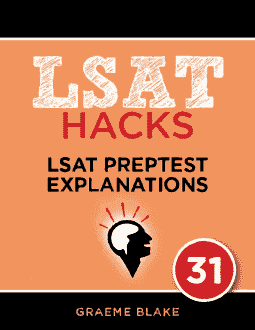DISCUSSION: The passage discusses Haraway and her ideas. The passage is favorable to Haraway. It talks about what she says, and how she says it.
___________
- This answer choice leaves out Haraway, the main focus of discussion.
- Two methods? We’re told a lot about Haraway’s method, but we’re only incidentally told about the traditional method. The point of the article was to discuss Haraway, rather than compare the two methods.
- CORRECT. The proposal is Haraway’s proposal. The passage talks about what she says, and how she says it.
- The book is about primates, not women in science.
- Writing styles, plural? That’s enough to eliminate this answer. We only really know about Haraway’s style. And we’re not sure if she writes the way she does because of her writing style.


This is a tricky one… I will acknowledge that C is in fact the slightly more correct answer, but I disagree that the passage indicates the book isn’t about women in science.
The passage states that the book is “a history of science from a feminist perspective” — I don’t really see how that wouldn’t mean that it involves the discussion of, well, _something_ relating to women in science. If it has no discussion of any of: 1) women scientist’s views/experiences in the history of science, 2) individual woman scientists and their accomplishments or other biographically relevant details, or 3) the lack of representation in science history of important women, then I don’t really see how it could be considered a “history of science from a feminist perspective.”
Ergo, if it is in fact supposedly “a history of science from a feminist perspective,” then I don’t see how it can be a book solely about primates to the degree of exclusion of not being characterize-able** as being a book “about women in science.”
** Character-izable… I know sounds more like a pokemon than a real word, I know. What I mean is like.. “the ability to be characterized” as such and such
The way D phrases it, it sounds like women in science is the main point of the book. But it’s not, since the passage clearly states Haraway wrote about primatology. It’s a bit finicky but something from XYZ perspective doesn’t usually center on the “perspective” but still on the subject matter. For example, you can have conservative or liberal-perspective books on economics. But the point of the book is still economics, just interpreted from these political POVs. Likewise, Haraway’s book would still be about primates.
For questions asking about passage summary/main point, a good way to check your work is to see if each paragraph is related to the answer choice in some way. Since the answer is the main point, it should encompass some element of each paragraph.
Thanks for the tip that’s really helpful.